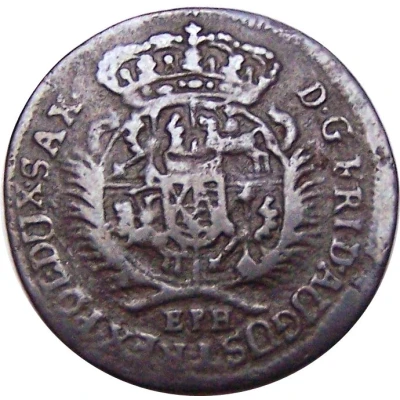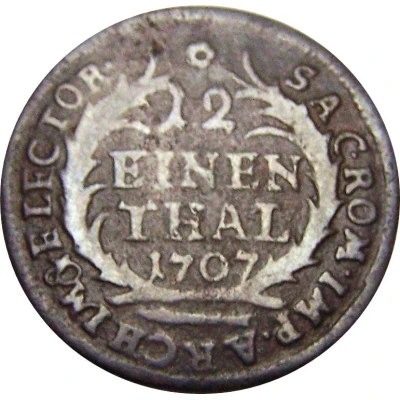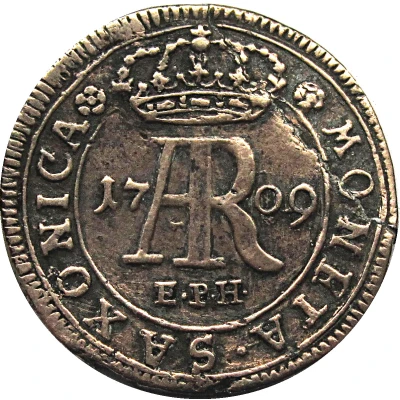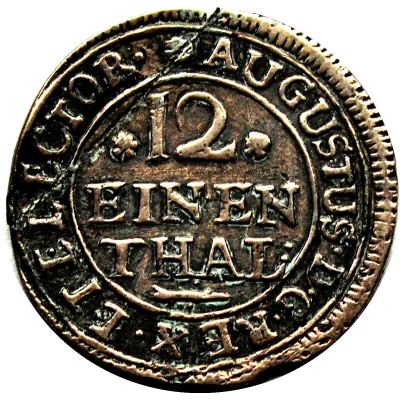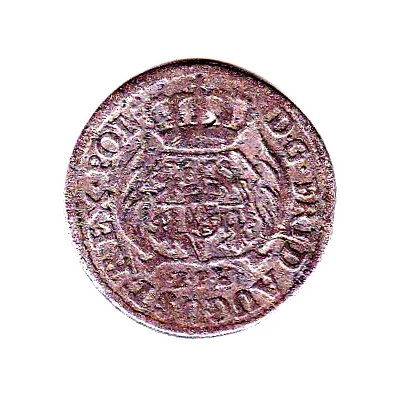
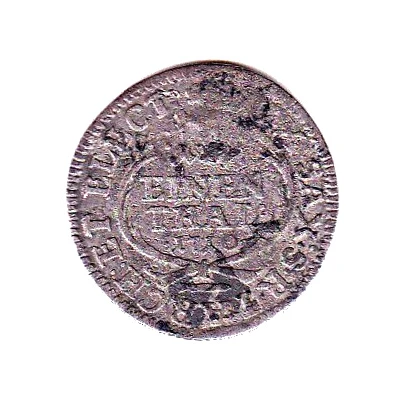

1⁄12 Thaler - Frederick August I
| Billon | 3.22 g | 24 mm |
| Issuer | Electorate of Saxony (Albertinian Line) (German States) |
|---|---|
| Issuer | Electorate of Saxony (Albertinian Line) (German States) |
| Prince elector | Frederick Augustus I (Friedrich August I) (1694-1733) |
| Prince elector | Frederick Augustus I (Friedrich August I) (1694-1733) |
| Type | Standard circulation coin |
| Type | Standard circulation coin |
| Years | 1706-1717 |
| Years | 1706-1717 |
| Value | 1⁄12 Thaler |
| Value | 1⁄12 Thaler |
| Currency | Thaler (1493-1805) |
| Currency | Thaler (1493-1805) |
| Composition | Billon |
| Composition | Billon |
| Weight | 3.22 g |
| Weight | 3.22 g |
| Diameter | 24 mm |
| Diameter | 24 mm |
| Thickness | 0.8 mm |
| Thickness | 0.8 mm |
| Shape | Round |
| Shape | Round |
| Orientation | Medal alignment ↑↑ |
| Orientation | Medal alignment ↑↑ |
| Demonetized | Yes |
| Demonetized | Yes |
| Updated | 2024-10-05 |
| Numista | N#84419 |
|---|---|
| Rarity index | 87% |
Reverse
Value and date within branches.
Script: Latin
Lettering: DUX: SAX S:R:I: ARCH: ET ELECT:
Edge
Plain
Comment
Augustus II the Strong (1670-1733) was Dux and Princ-Elector of Saxony (1697-1733), under the name Friedrich August I he was elected as King of Poland & Grand Duke of Lithiania (1697-1706, 1709-1733) (Personal Unia). August had to pass temporary the Polish throne to Stanislav when Swedish Impire occupied Warsaw and won the Battle of Fraustad. Later, in 1709 Russian Imperor Peter won the Battle of Poltava against Swedes and then August was re-assigned to Polish throne again under protection of the Russian Impere. During Saxonian-Polish-Lithianian Unia many Polish and Saxonian coins were minted of the same type.Interesting fact
One interesting fact about this coin is that it was minted during a time of great economic and political change in the Electorate of Saxony. The reign of Frederick August I saw significant reforms in the mining and minting industries, which led to the introduction of new coinage systems and the production of higher quality coins. This 1/12 Thaler coin, made of Billon and weighing 3.22g, is a testament to the advanced minting techniques and attention to detail that were characteristic of the time.
